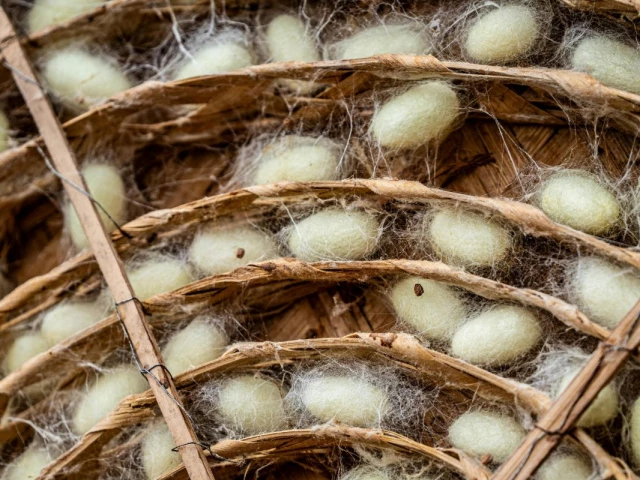Lahore:
Various projects claim to reduce poverty and strengthen the rural economy in Punjab, but the non -banish forest product sector (NTFP) has been continuously neglected, despite its potential for connecting small businesses and employment to thousands of rural families, in particular women.
Experts are of the opinion that if an appropriate policy is adopted in this sense, Pakistan will reduce not only poverty, but will also become self -sufficient in the field of plants based on plants and cosmetics. Fatima Bibi by Changa Manga, a suburb of Kasur, which supports its household expenses by raising silkworms for many years, is a living example.
“I used to win an income from 60,000 rupees to 70,000 rupees by buying silk seeds for 4,000 rupees. I also received mushroom growth training, but due to the lack of practical installations, the process could not go ahead, “said Fatima. Like Fatima, thousands of families trained in silk production are now unemployed.
The Punjab Forest Department had launched a project of a value of RS136 million in 2021 for Sévanture, Mushroom Agriculture, Beekeeping and the Culture of Medicinal Plants. During the first phase, 1,500 men and 500 women were trained, but the project was abandoned the following year. Consequently, all those who had practically dreamed of starting this business were disappointed.
According to Dr. Zafar Siddic, an associate professor at the Government College Lahore, 70 to 80% of the world’s population still uses plants based on plants. Pakistan has huge opportunities for growing plants such as aloe vera, basil, kalonji, ajwain and moringa, but we are counting on imports from India to meet their demand. “If women receive seeds and basic formation, agriculture can easily be started by gardening of cooking, which will improve both income and health,” said Dr. Siddiqui.
FAROOQ BHATTI, deputy director of seulture, confirmed that his organization currently worked solely on the manufacture of silk with limited funds, while only experimental projects were underway on mushrooms, honey and herbs. “The Japanese mulberry was cultivated in various districts, including manga Changa, which is used for food for silkworms as well as for medicine and crafts,” said Bhatti.
Rana Saeed Anwar, president of Silk Farming and Traders Association, said that the project was aimed at employing 100,000 families in 2021 and 2022, which had been brought to a million in a gradual way. “But with the end of the management, this dream was not satisfied. About 400,000 people could be employed by beekeeping alone and 700,000 people by silk, while 30,000 women could earn a income in the household plant cultivation,” informed Anwar.
The Director General of the Punjab Forest Department, Azfar Zia, assured that the government was determined to activate the non -channeling agricultural products sector. “The investigation into herbs and plants on 1.25 million acres of forest in Punjab was completed. Our goal is to provide alternative employment from non -touring forest products to neighboring communities so that people can benefit from these resources instead of cutting wood, ”said Zia.
Experts agree that projects such as non -worn forest products can guarantee sustainable livelihoods for rural women and small farmers, however, systematic policy and regular funding are key requirements.




